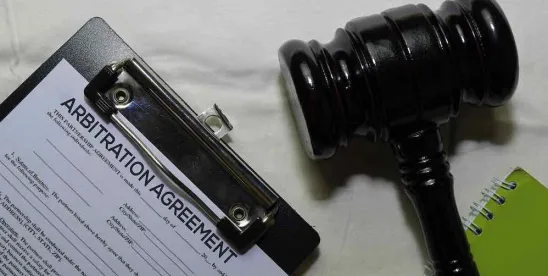In Elijah Baer, et al. v. Tesla Motors, Inc., fifteen plaintiffs filed a putative class and Private Attorneys General Act (“PAGA”) representative action lawsuit against Tesla, Inc. (“Tesla”) alleging wage-hour violations of California law.
Two of the plaintiffs were employed by Staffmark Investment LLC (“Staffmark”) – a non-party staffing agency – and assigned to work at Tesla for a period in 2020. The other plaintiffs were direct former or current employees of Tesla going back to 2017. After Tesla removed the action to federal court, it moved to compel arbitration.
The plaintiffs signed various arbitration agreements throughout their employment. From the fall of 2018 to May 2022, Tesla utilized a recruiting software called Averture. According to Tesla, Averture required applicants to create a secure online profile with their own personal information. Eight of the plaintiffs signed offer letters with Tesla through Averture containing an arbitration provision. These plaintiffs did not dispute that they signed, and Tesla countersigned, the offer letters.
At some point in 2022, Tesla stopped using Averture and started using a system called Inside Tesla. The security measures applicable to Averture were largely the same as those employed by Inside Tesla; however, applicants who were offered employment under Inside Tesla signed an offer letter and a standalone arbitration agreement. Four of the plaintiffs signed arbitration agreements through the Inside Tesla system.
Lastly, two plaintiffs worked for Staffmark and were assigned to work at Tesla. Before their assignments began, they signed a document containing an arbitration agreement. However, they disputed signing the document, claiming that the signatures were forged.
Tesla moved to compel individual arbitration based on each version of the arbitration agreement, and Tesla also moved to dismiss the proposed class and non-individual, representative PAGA claims, or in the alternative, to stay the PAGA claims pending arbitration. The plaintiffs opposed on various grounds.
The plaintiffs first argued that the alleged forgeries on two of the arbitration agreements warranted denial of Tesla’s motion as to all of the plaintiffs based on the doctrine of unclean hands. In support, the Staffmark plaintiffs attested that their onboarding with Tesla occurred a day after the date found on their arbitration documents, and therefore, they could not have signed them. In response, Tesla argued that it was possible that a third party signed the agreements on the Staffmark plaintiffs’ behalf but that no Tesla employee or representative ever claimed to be present when the agreements were executed. Therefore, Tesla argued that the plaintiffs did not meet the requisite evidentiary showing by the clear and convincing standard necessary to prevail under the unclean hands doctrine.
The Court found that since the misconduct which brings the unclean hands doctrine into operation must affect the equitable relation between the litigations, at most, the alleged inequitable behavior by Tesla would only affect the Staffmark plaintiffs. Accordingly, based on the unclean hands argument, the Court denied Tesla’s motion as to the Staffmark plaintiffs only.
Separately, the plaintiffs challenged the agreement on contractual grounds. The Court was unpersuaded by the plaintiffs’ arguments that Elon Musk’s signature for Tesla on one version of the agreements was unverified because the agreement itself evidenced Tesla’s intent to be bound by it. Likewise, given the comprehensive declaration submitted by Tesla in support of its onboarding process evidencing that the plaintiffs did in fact sign the agreements, the Court was unpersuaded by declarations from two of the plaintiffs, in which they contended that they did not sign or remember signing the agreements. However, since Tesla was unable to show that the Staffmark plaintiffs signed the documentation containing the arbitration agreement, the Court did not find that a valid arbitration agreement existed between either of them and Tesla. The Court’s finding was without prejudice to the submission of further evidence.
The plaintiffs also argued that two terms in a separate non-disclosure agreement they signed at the same time as the arbitration agreement rendered the agreements unconscionable because, since the agreements were both signed as part of the onboarding process, they should be viewed cumulatively as one singular transaction, and therefore one agreement. The Court rejected the argument, finding that the non-disclosure agreement was separate from the offer letter containing the arbitration agreement because the agreements related to different topics and did not incorporate the terms of one another.
Based on its findings, the Court granted Tesla’s motion compelling individual arbitration as to all plaintiffs except the Staffmark plaintiffs, dismissed the proposed class claims, and stayed the non-individual, representative PAGA claims pending the outcome of arbitration of the plaintiffs’ individual claims. The Court’s decision is an important reminder of how arbitration agreements are a critical tool for employers to potentially minimize risk and avoid costly class action litigation.



 />i
/>i

